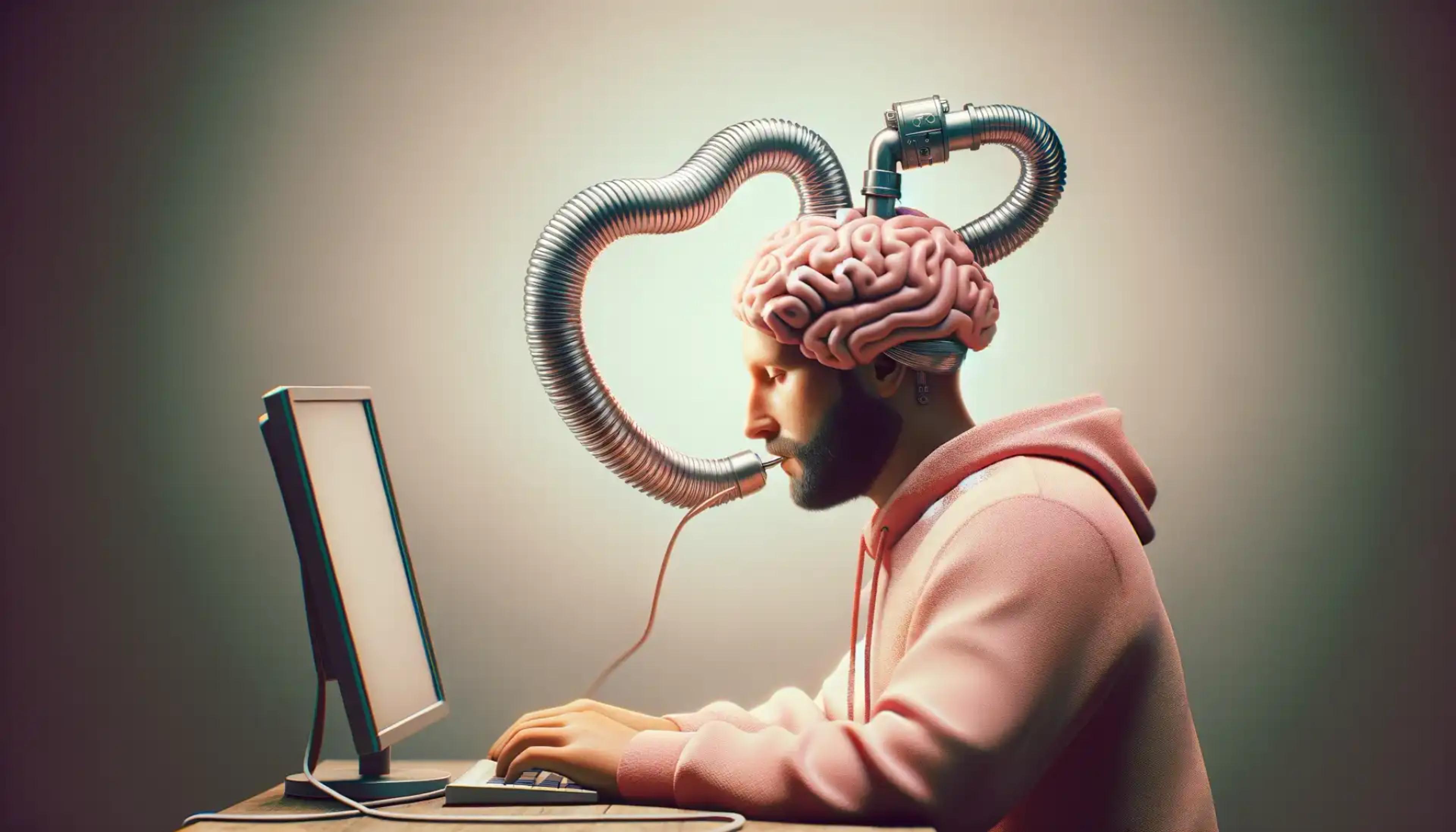Decembre 2023
Master the monster
While A.I. has been all around for more than a year, it seems that it has been literally “around” me for a while. Not that I wasn’t interested, but I think I was/am part of those “intrigued-but-afraid people”.
In an interview for PUB magazine few months ago, I described A.I. tools as “extra players around the brainstorming table”. So, not someone who is always right, but someone who brings valuable insights.
But still, my old-fashioned brain had doubts.
- Are “they” going to make us obsolete?
- Are “they” going to destroy our ability to think, imagine and create?
- Will “they” impact our capacity of learning?
- Will “they” turn our brains into a soft and chewy marshmallows?
Few weeks ago shared an article with the team, giving a statement strongly against the use of ChatGPT to solve our problems and pointing fingers on risks and threats for our imagination. This initiated an intense debate between us… The debate motivated demos and tests, that initiated new discussions…
I came back home with new questions, new doubts, and the wish to explore more.
Prompt.
Answer.
Re-prompt.
New answer.
Can you please give me the exact prompt you used (to understand how to prompt).
New suggested prompt (adapted).
New answer.
Other subjects, other prompts, etc.
Then, I started to question the answers.
“This answer seems a bit simplistic, can you elaborate a bit more?”
“These two criteria seem missing in your answer.”
Step by step, I was learning how to master the monster.
But everything became obvious the night I try to help someone at home, on a subject completely out of my zone of expertise.
Poor prompt.
Poor answer.
Vain attempt to re-prompt.
Another poor answer.
I said :”You know what, let describe your issue and let’s try to solve it the old-fashioned way.”
What I figure that day is that we had a bigger brain than ChatGPT.
It certainly knows lots of stuff, but it still needs our neuronal system, our critical thinking, and our expertise on specific issues to generate rich results. If we have a hangover, so does ChatGPT. If we are trying to solve a problem in the stress, ChatGPT will lose its temper. If we are not smart, ChatGPT is stupid.
This observation raises a persistent question: if our brains is the drivers of GPT’s answers, if we are the driver of A.I.’s quality of results – the future will be influenced by what we decide to do with these tools. Are we worthy of the technology?
Let’s see what Bard think about this.
